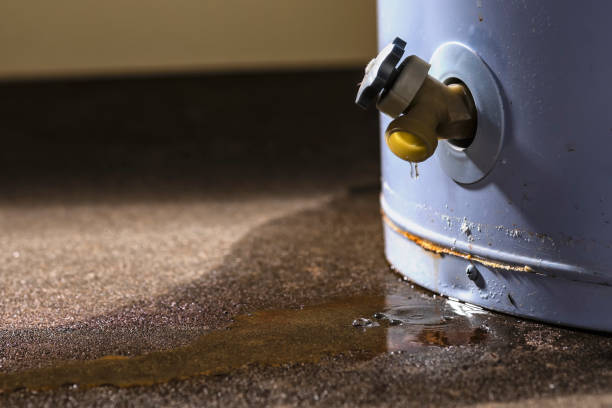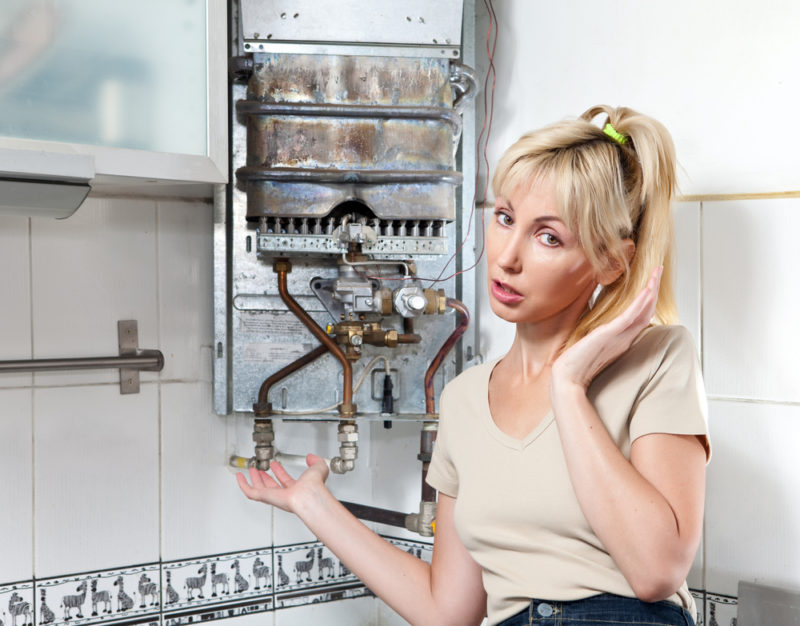What are your thoughts and feelings about Maintaining & Draining a Water Heater?

Whether it lies in the cellar or a separate area, damaged hot water heater can create anxiety. A common unit holds 80 gallons, so an over night leakage will cause a flooding. This results in major property damage with soaked walls as well as floorings. Besides, having no warm water supply is additionally problematic. If you are taking care of these problems, bear in mind of the following:
Shut Down Source Of Power
Before calling the plumber, shut off a gas hot water heater by turning the temperature level dial. This is normally located on top of the thermostat. Switch off the circuit breaker if you have a design that runs on electrical power. This will protect against electrocution, particularly if there is a leakage as water is a conductor. Generally, the burner shuts down when the water hits a specific temperature level. Yet with a busted tank, it may malfunction. Sufficing off guarantees you remain risk-free.
Cut Off the Cold Water Supply
Cut off the storage tanks faucet water supply from the resource. This goes from your major water line right into the storage tank. When your container is in good condition, the cold water quits filling out when the tank is complete. Because it is dripping, the water will certainly continue to flow. Close the valve discovered on top of the heating system. Rotate this clockwise to close it off. If you can not find it or reach it, you must switch off that major water supply line outside your building.
Call the Plumber
After doing the initial 2 security actions, you have to call your plumber to come right away to take care of a ruptured water heating system. There are typically indicators that your aging water heating unit has sediment accumulation in the inside.
Instead, as quickly as you spot these signs, have an expert come to examine your water heater thank. Generally, water heaters have a life-span of regarding 8 to 12 years.
Clean Up Home
After calling the plumber, file damages by bearing in mind and pictures so you can declare your property owner's insurance coverage. From there, begin the instant cleaning. Take out any type of essential valuables to prevent additional saturating. Then, eliminate any type of standing water to avoid mold as well as mold growth. If you have a completely submersible water pump, make use of that to drain pipes the water. Otherwise, the conventional bucket technique will additionally work. Attempt to wipe out everything, including walls as well as wall surfaces. Maintain them running to keep air distributing if you have an electrical fan as well as dehumidifier. This will certainly help prevent mold growth.
Bear in mind, if you discover any kind of issues with your water heating unit, call the pros right away. You can not take this trouble lightly since a damaged thermostat can raise water temp to a precariously high degree, leading to accidental burns.
Whether it is located in the basement or a separate space, damaged water heating units can trigger stress. Before calling the plumber, shut off a gas water heating system by turning the temperature dial. After doing the very first 2 security steps, you should call your plumber to come right away to take care of a fractured water heating system. If you have a submersible water pump, utilize that to drain the water. Bear in mind, if you see any kind of problems with your water heater, call the pros right away.
Water Heater Repair: Why It Should Be Treated With Urgency
Reasons Why Water Heater Repair Should Be Treated With Urgency
It is a critical part of your home: Your water heater is responsible for supplying your home with hot water, which is a crucial part of everyday life. A malfunctioning water heater can seriously disrupt your daily routine, from showering to doing the dishes. When it breaks down, you’re left with a major inconvenience. Therefore, it’s essential to address any issues as soon as they arise.
It can be costly to repair: A water heater that is not functioning properly can end up costing you a lot of money in repairs. In some cases, it may even be more cost-effective to replace the unit altogether. That’s why it’s essential to catch any problems with your water heater as soon as they arise and address them with a qualified technician.
It can be dangerous: A broken water heater can pose a severe safety hazard to you and your family. If the unit leaks or emits harmful gasses, it could result in sickness or death. Besides, a broken water heater can lead to extensive water damage in your home. It’s important to remember that a malfunctioning water heater should not be taken lightly – it needs to be addressed as soon as possible.
Extend the lifespan of your unit: When you repair your water heater as soon as problems arise, you’re not only ensuring that your home is safe and comfortable, but you’re also extending the life of your unit. This is because the more you wait to address problems, the worse they’re likely to get. By taking care of issues as soon as they arise, you’re preventing them from snowballing into a bigger problem down the road.
Signs You Need Water Heater Repair
Now that you know why water heater repair should be a priority, it’s essential to know when you have issues with your unit. Here are some common signs that you may need to call in a professional:
Rust or sediment in your water: If you notice rust or sediment in your water, it’s a sign that something is wrong with your water heater. This could be a sign of corrosion or scale build-up, both of which need to be addressed by a professional technician.
No hot water: This is probably the most obvious sign that something is wrong with your water heater. If you’re not getting any hot water, there is likely a problem with the heating element or the thermostat.
Water leaking from your water heater: If you notice water leaking from your water heater, it’s time to call in a professional. This could be a sign of a severe problem, such as a leaky tank or corroded plumbing.
Noise coming from your water heater: If you hear banging, hissing, or whistling coming from your water heater, it’s a sign that something is wrong. This could be a sign of sediment build-up, a corroded tank, or a clogged burner.
The water is not hot enough: If the water coming out of your taps is not hot enough or if it’s taking longer than usual to get hot, you need water heater repair. This could result from low water pressure, a clogged burner, or an issue with the thermostat.
It’s been more than a decade since the last repair: If it’s been more than a decade since your water heater was last repaired, it’s probably time for a tune-up. Often, minor problems can turn into bigger issues if they’re not addressed promptly.
If you’re experiencing any of these signs, it’s time to call in a professional and get yours repaired. Don’t wait until the problem gets worse – address it as soon as possible to avoid additional hassle and expense.

Do you like reading about How to Avoid a Broken Hot Water Heater? Put a remark below. We'd be glad to find out your opinion about this review. We are looking forward to see you back again soon. Sharing is caring. Helping people is fun. I am grateful for your time. Please check our site back soon.
Connect for clarity.